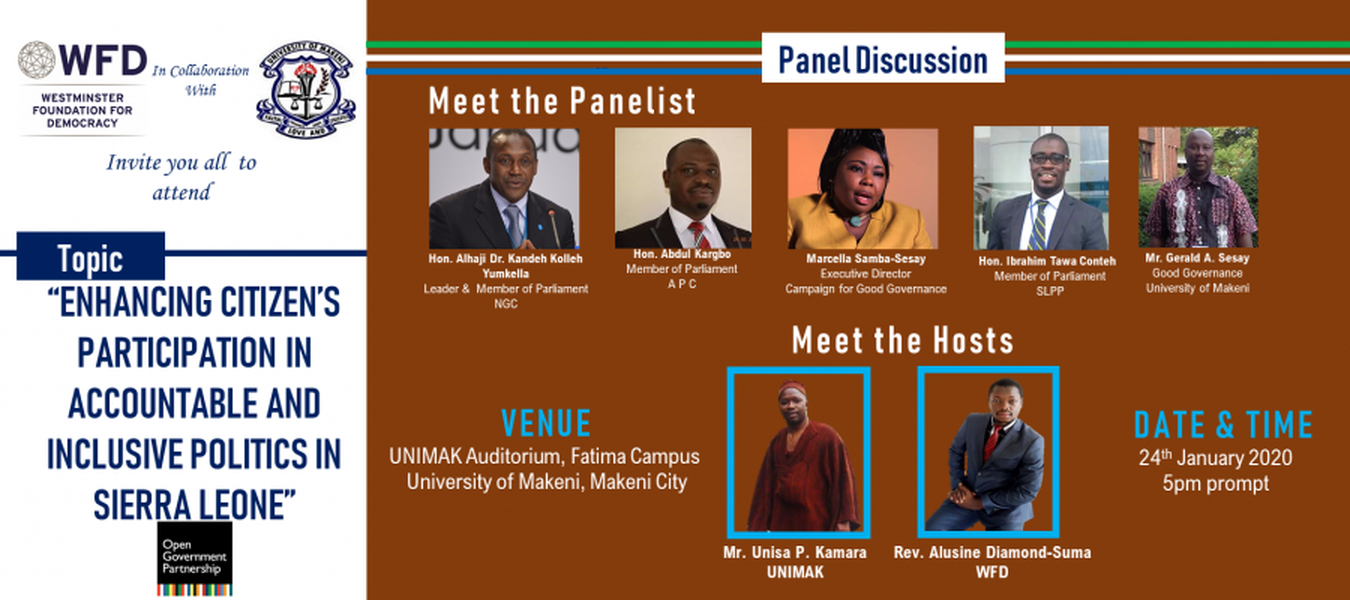Redefining collaboration and healing public trust through open parliament reforms
There is a disconnect between citizens and the parliament in Indonesia. At least that is what the Westminster Foundation for Democracy (WFD) and the Indonesian Parliament (DPR RI) found from a public perception survey conducted between July and August 2020. An overwhelming majority of the respondents agreed that public participation is “very important” in supporting parliament’s work, but almost half had never participated through any of the various means available.
This does not mean that the parliament has deliberately restricted public access to information and opportunities of participation. In fact, the Indonesian Parliament already maintains multiple public participation channels with almost unrestricted access—including in-person audiences with MPs, attendance at formal parliamentary proceedings, live streaming channels, and a legislation information system with public feedback forms. But despite all of these channels, there seems to be disconnect between the parliament and the citizens they are expected to represent.
The need to build trust
In a consultative workshop with the Indonesian Parliament on 21–23 October 2020, WFD brought together parliamentary and civil society leaders to discuss the reasons behind the disconnect and co-create solutions. The forum agreed that there is a persistent public distrust towards the parliament.
Opening the workshop, Secretary General of the Indonesian Parliament Indra Iskandar acknowledged that there are different understandings of what open parliament means and how it could be achieved. Reflecting on the widespread criticisms over the Job Creation Omnibus Law, he also emphasized the pressing need for “the parliament, civil society, and the media to build better relationships on mutual trust”. The Job Creation Omnibus Law, which was passed on 5 October 2020 and signed into law by President Joko Widodo on 2 November 2020, affects 76 existing laws and is viewed as harmful to labor rights and environmental protection efforts. In the past month, it has led to widespread protest despite COVID-19 risks across the country.
One of the key takeaways from this controversy has been that there is a wide gap between the parliament and the citizens. Many have been critical of how the bill was difficult to access and therefore hampered public participation in scrutinising it. An open parliament approach has the potential to avoid such situations in the future by closing the gap between the parliament and the citizens.
More openness, more trust
WFD’s Senior Transparency Advisor Julia Keutgen shared some best practices of open parliament reforms in Open Government Partnership (OGP) participating countries and explained how open parliament agendas could make a lasting impact on the quality of parliamentary process and, in turn, on public trust towards the parliament. OGP Envoy Maryati Abdullah laid out the multilateral, action–oriented approach of the OGP model and how it has led to various reforms in 79 national and 20 local governments across the world. For example, the UK’s beneficial ownership transparency law and public register which significantly enhances transparency in the private sector and has been hailed as model implementation as well as Indonesia’s public complaints management platform LAPOR, where citizens could file complaints and received feedback regarding a wide range of public services via text messages, website, mobile application, and social media.
The three-day workshop saw the forum breaking into three focus groups: one each to focus on access to information, public participation, and public accountability. Civil society laid out the challenges that they have faced in engaging the parliament, public demands, and potential opportunities to collaborate. For example, Damar Juniarto of the Southeast Asian Freedom of Expression Network (SAFEnet) shared their experience safeguarding parliamentary process on several high-profile legislations such as the Electronic Transaction and Information Law as well as the Personal Data Protection Bill which hit multiple stumbling blocks due to gaps in the circulation of information and updates on the process as well as access to relevant documents. This is particularly critical as civil society often become skeptical of engaging with the parliament because there is no clear mechanism to guarantee that their feedback and input would be considered in shaping legislation, rather than end up as a mere formality. Meanwhile, Hesthi Murthi of the Indonesian Cyber Media Association (AMSI) highlighted the difficulties that journalists often face when trying to participate in parliamentary proceedings, therefore making it difficult for them to fulfill their role as the press.
Furthermore, the parliamentary delegates outlined their current agendas and programmes, the various bureaucratic challenges that they themselves face, and perspectives on what would be viable and where civil society collaboration are most needed to create real impact.
Going forward, the forum agreed that a strategic plan for a more open parliament has the potential to redefine collaboration through co-creation and co-delivery as well as to heal public trust in the Indonesian Parliament. The forum will continue to work together under the coordination of the Open Parliament Indonesia Secretariat to finalise the new action plans. Closing the forum, WFD Indonesia Country Representative Agus Wijayanto noted the improvement in the consultation process compared to the first action plan cycle. He also shared WFD’s plan to engage MP champions through the initiative “to bring more strategic values as well as broaden the stakeholders to optimise the impact of open parliament reforms”.
The three-day workshop took place on 21 – 23 October 2020. Civil society groups present included the International Association for Public Participation (IA2P), the Legislative Oversight Committee (Kopel), the Indonesia Budget Center (IBC), and Publish What You Pay (PWYP). The Indonesian Parliamentary Center (IPC) also helps facilitate the forum with WFD and the OPI Secretariat. A larger consultation was not possible due to restrictions caused by the ongoing COVID-19 crisis.
This blogpost was originally posted on the Westminster Foundation for Democracy website. Click here to read the original blog.





